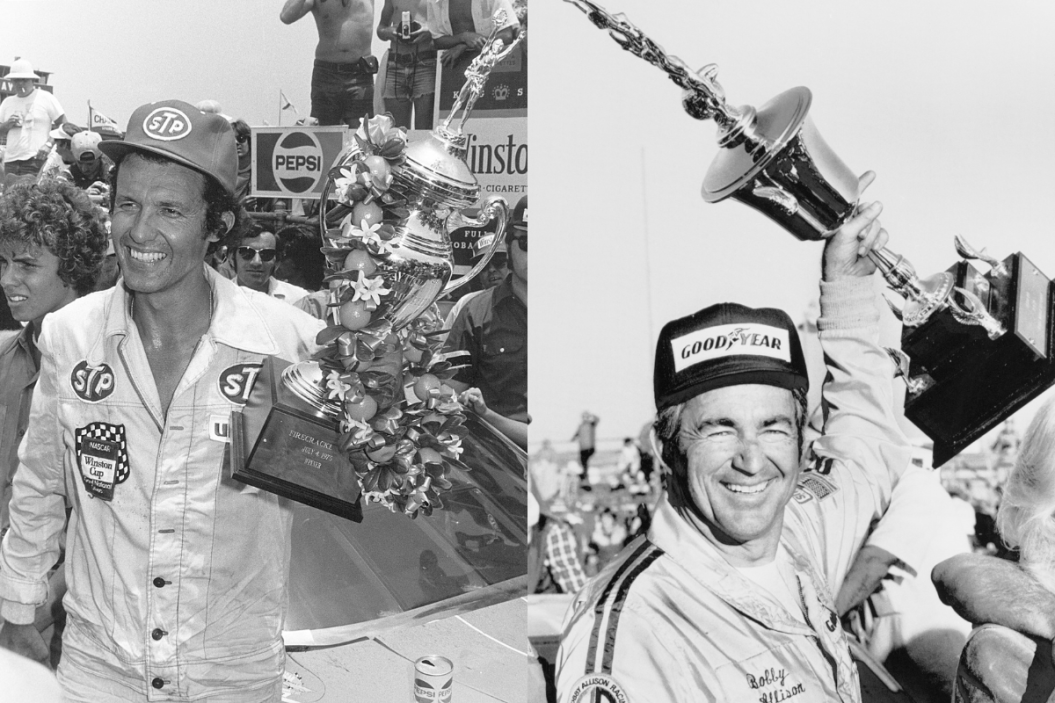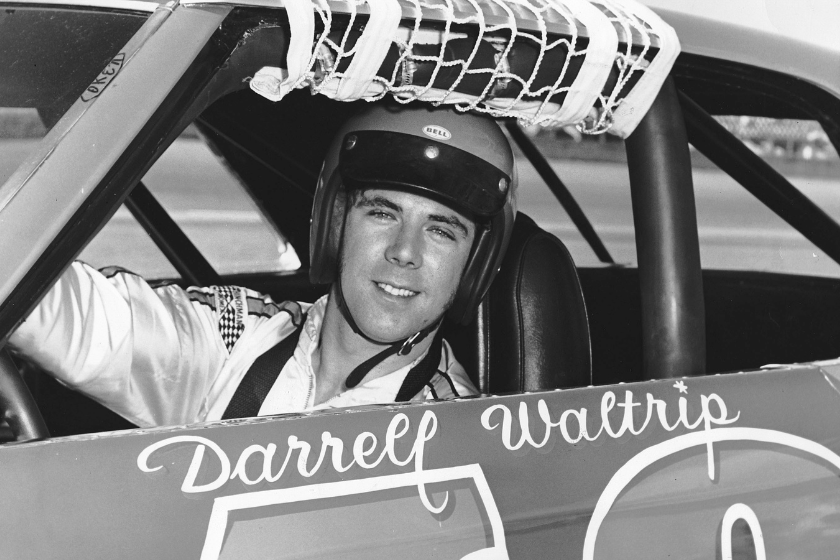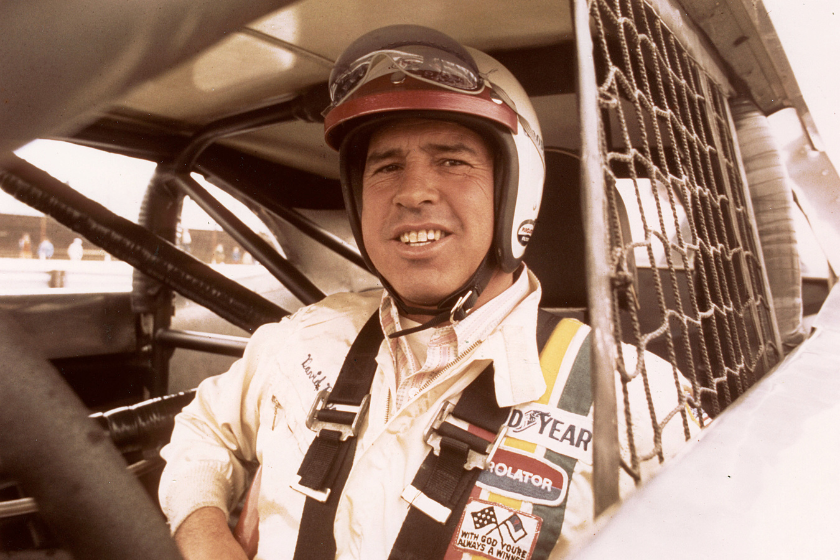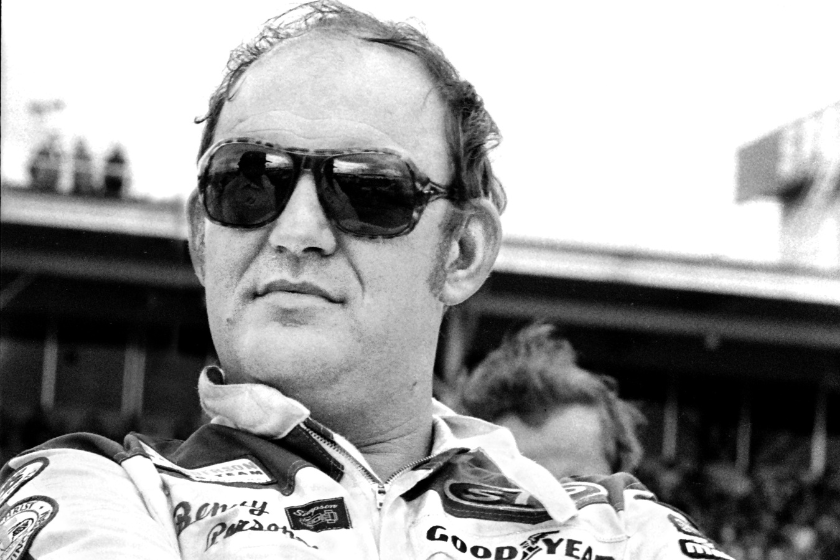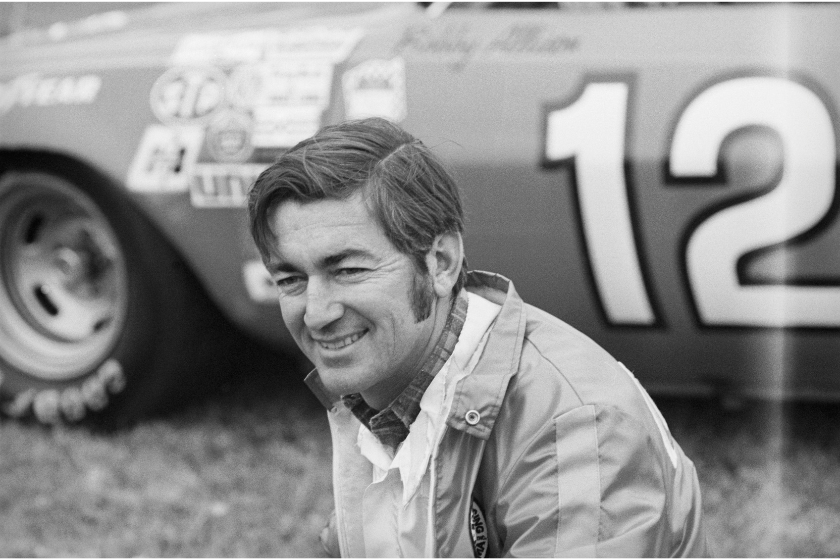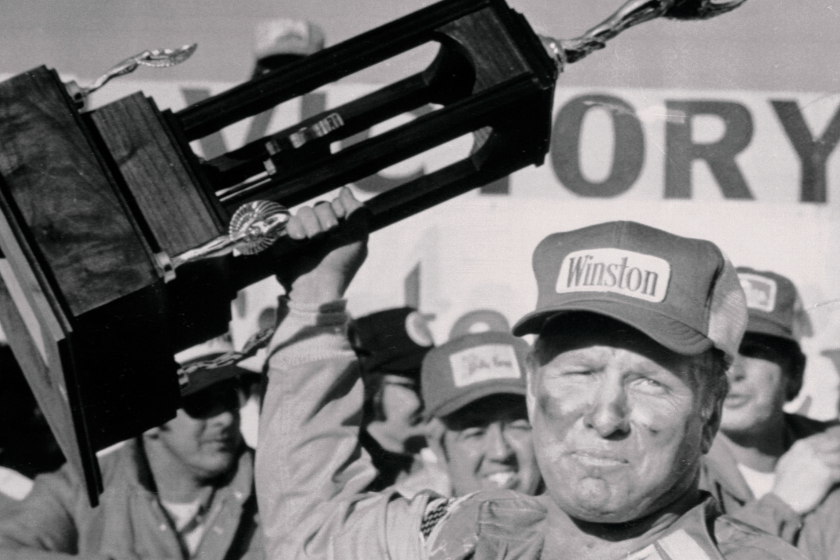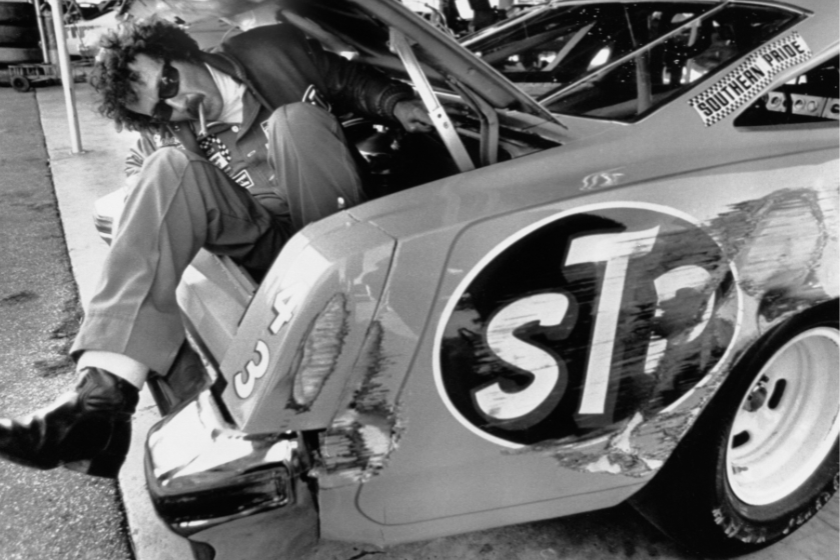While NASCAR grew in popularity in the 1960s, it absolutely soared in the 1970s. Auto racing was even dubbed "The Sport of the 1970s" and for good reason. With a host of new, top-of-the-line facilities popping up all over the country, NASCAR was beginning to make its way into the modern era.
Videos by FanBuzz
On top of that, the cars were faster, the races were more exciting, and the rivalries were more intense. These facets paved the way for some of the most iconic racers in the sport. Though there were countless dominant drivers who thrived during this era, here, we'll look at the six best NASCAR drivers of the 1970s.
6. Darrell Waltrip
Darrell Waltrip's most dominant years as a NASCAR driver may have come in the 1980s (he won his Winston Cup Series championships in 1981, 1982, and 1985), but the NASCAR Hall of Famer first made his mark on the sport in the 1970s. Waltrip, known to most NASCAR fans these days for his stint as a broadcaster and his famous "boggity, boogity, boogity" catchphrase, got his start in the Cup Series in 1972. DW cut his teeth against some of the best to ever do it, facing off against the likes of Richard Petty, David Pearson, Cale Yarborough, and Bobby Allison. Still, Waltrip held his own and showed that he had what it took to make it in NASCAR's highest level.
Waltrip's best seasons during the decade came during the late '70s, as he finished fourth in the standings in 1977, third in 1978, and second in 1979. Some of his major wins included the 1977 Winston 500, the 1978 Coca-Cola 600, and the 1979 Coca-Cola 600. By the time the '70s were over, Waltrip was actually ranked NASCAR's No. 2 driver, winning 22 Cup races in 149 race starts.
5. David Pearson
The late David Pearson was an exceptional racer in the 1960s, and he nearly matched this dominant streak in the '70s, despite competing in about half of the number of races when compared to the previous decade. In just 186 starts, he earned 47 wins, including the 1972 and 1973 Winston 500, the 1976 Daytona 500, and the 1976, 1977, and 1979 Southern 500. He also racked up 126 top-10 finishes, and, of those 126 top-10s, 118 were inside the top five. Now, that's what we call efficient racing.
Nicknamed the "Fox" for being exceptionally calculated behind the wheel of a stock car, Pearson's slyness definitely showed itself during the '70s. Still, that slyness didn't alienate him at all from the folks watching in the grandstands or at home. In fact, following the 1979 Cup season, Pearson was voted by the fans as NASCAR's Most Popular Driver that year.
4. Benny Parsons
Benny Parsons experienced success during the 1970s in a pretty unorthodox way. How do you explain him winning the 1973 NASCAR championship with only one Cup win? Well, it turns out that, during this time in the Cup Series, points were awarded for every lap completed as well as overall finishing position. With 21 top-10 finishes and 15 top-five finishes as well as 9,311 completed laps out of 10,258, Parsons accumulated enough points to get the job done. After winning the Cup title, Parsons became the only driver to win both ARCA and NASCAR championships.
On top of his impressive 1973 season, Parsons' team, Dewitt Racing, had no sponsors and only had three cars with which to run the entire season. Managing to win under those circumstances — and earn himself a spot among NASCAR's 50 Greatest Drivers — was clearly no easy feat. Parsons would never win another championship, but the 1975 Daytona 500 winner would continue to be a force to be reckoned with in the '70s, never having a season-ending finish in the standings worse than fifth throughout the decade.
3. Bobby Allison
With a NASCAR career spanning 25 years, Bobby Allison made a fantastic first impression during his first full-time Cup Series season in 1972. Allison raced to 10 wins and 12 runner-up finishes on the way to a second-place finish in the standings. Not a bad way to kick off your rookie season.
Though he wouldn't have his lone championship run until 1983, Allison would have a number of career-defining wins during the '70s. He won the Southern 500 three times (1971, 1972, and 1975), the Daytona 500 in 1978, and the Winston 500 in 1979. From 1971-1973, Allison was also the Winston Cup Series' Most Popular Driver. The Miami, Florida native was also involved in the infamous brawl with Cale Yarborough at the 1979 Daytona 500, which helped to increase the NASCAR fan base like never before. But, more about that in just a second.
2. Cale Yarborough
Cale Yarborough is probably most known, particularly among younger NASCAR fans, for his fight with Donnie and Bobby Allison at the 1979 Daytona 500. A good deal of experts and enthusiasts consider this to be the most important race in the history of the sport, since it was the first NASCAR race ever aired on national television from start-to-finish. And, it wasn't Petty's win, but Yarborough's scrap on the infield of Daytona International Speedway that made that year's running of the "Great American Race" such a groundbreaking event. Hey, everyone loves a good fight.
But, Yarborough was more than just a racer who wasn't afraid to get his hands dirty. Victory lane was pretty much his second home. In 1974, he won 10 races, which marked a career-high single-season stat for the South Carolina legend. He'd finish second in the standings that year, but his true hot streak as a driver would come from 1976-1978, when he won three titles in a row. In '76, Yarborough won nine races, and not only repeated that feat in '77, but also finished every single race (he's one of just two Cup champions to accomplish this) and finished inside the top six during the last 14 races of the season. Yarborough's championship win in '78 made him the first driver in NASCAR history to win three consecutive championships.
What's even more impressive about Yarborough's run in the 1970s was that it came during the most dominant decade for the most dominant driver in the NASCAR Cup Series.
1. Richard Petty
The King strikes again. If Richard Petty was a dynamo behind the wheel during the '60s, then he was practically untouchable during the '70s. He won five of his seven championships during this decade (1971, 1972, 1974, 1975, and 1979) and four of his seven Daytona 500 wins (1971, 1973, 1974, and 1979), despite being faced with some stiff competition, a.k.a. all of the drivers that we just previously mentioned. There's a reasoned why Richard Petty is considered to be NASCAR royalty, and his performance during the 1970s plays a major part in that.
